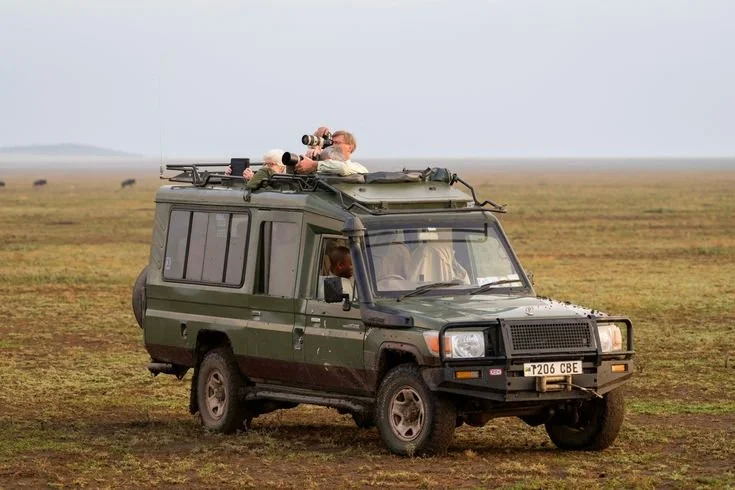Safari Vehicle Etiquette: How to Be a Responsible Wildlife Observer
An African safari is a dream adventure—but with great wildlife encounters comes great responsibility. Proper safari vehicle etiquette ensures the safety of both animals and travelers while maximizing your game-viewing experience.
Whether you're exploring the Serengeti, Kruger, or Uganda’s savannas, following these guidelines will make your safari more enjoyable, ethical, and memorable.
Why Safari Etiquette Matters
Protects wildlife from stress and human interference.
Ensures safety for both animals and visitors.
Enhances the experience for everyone in your vehicle.
📹 Watch this quick guide on African safari dos and don’ts:
("African Safari Rules – How to Respect Wildlife" – East Africa Travel Tips, 30 Jul 2020)
1. Maintain a Safe Distance from Wildlife
20-30 meters (65-100 ft) from most animals.
30-50 meters (100-165 ft) from predators like lions and leopards.
Never block an animal’s path—allow them to move freely.
📹 See how guides approach animals safely:
("Ethical Wildlife Viewing on Safari" – Wild Eye, 29 Nov 2015)
2. Minimize Noise & Sudden Movements
Speak in low voices—loud noises can scare animals away.
Silence your phone—no ringtones or loud notifications.
Avoid standing up suddenly—movements can spook wildlife.
3. Follow Your Guide’s Instructions
They know animal behavior—trust their expertise.
Respect park rules—they exist for conservation.
Ask questions politely—don’t monopolize their attention.
📹 Learn how guides optimize game drives:
("How to Use a Safari Vehicle for the Best Viewing" – African Guide Academy, 5 Apr 2020)
4. Responsible Photography Tips
Use zoom lenses instead of getting too close.
Turn off flash—it can distress animals.
Be patient—the best shots come to those who wait.
5. Respect Fellow Travelers
Share viewing spots—don’t hog the best angles.
Avoid excessive chatter—let everyone enjoy the sounds of nature.
Stay seated—standing blocks others’ views.
6. Never Feed or Provoke Wildlife
Feeding animals disrupts their natural diet.
Do not call or throw objects—this stresses wildlife.
Stay inside the vehicle unless instructed otherwise.
7. Protect the Environment
Stay on designated roads—off-roading damages ecosystems.
No littering—pack out all trash.
Avoid plastic bottles—use reusable containers.
Final Thoughts: Be a Conscious Safari Traveler
Following safari vehicle etiquette ensures:
✅ A safer experience for you and the animals.
✅ Better wildlife sightings—animals behave naturally when undisturbed.
✅ A positive impact on conservation efforts.
Ready for an ethical safari adventure? Book your trip with Kwezi Adventures and experience wildlife the right way.

